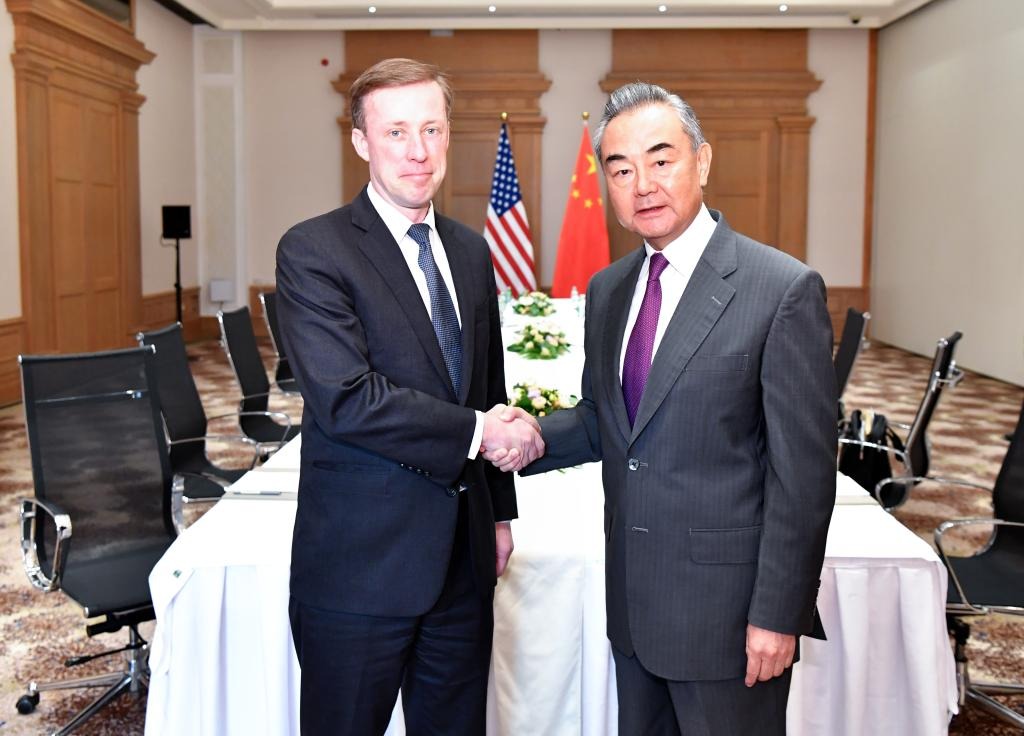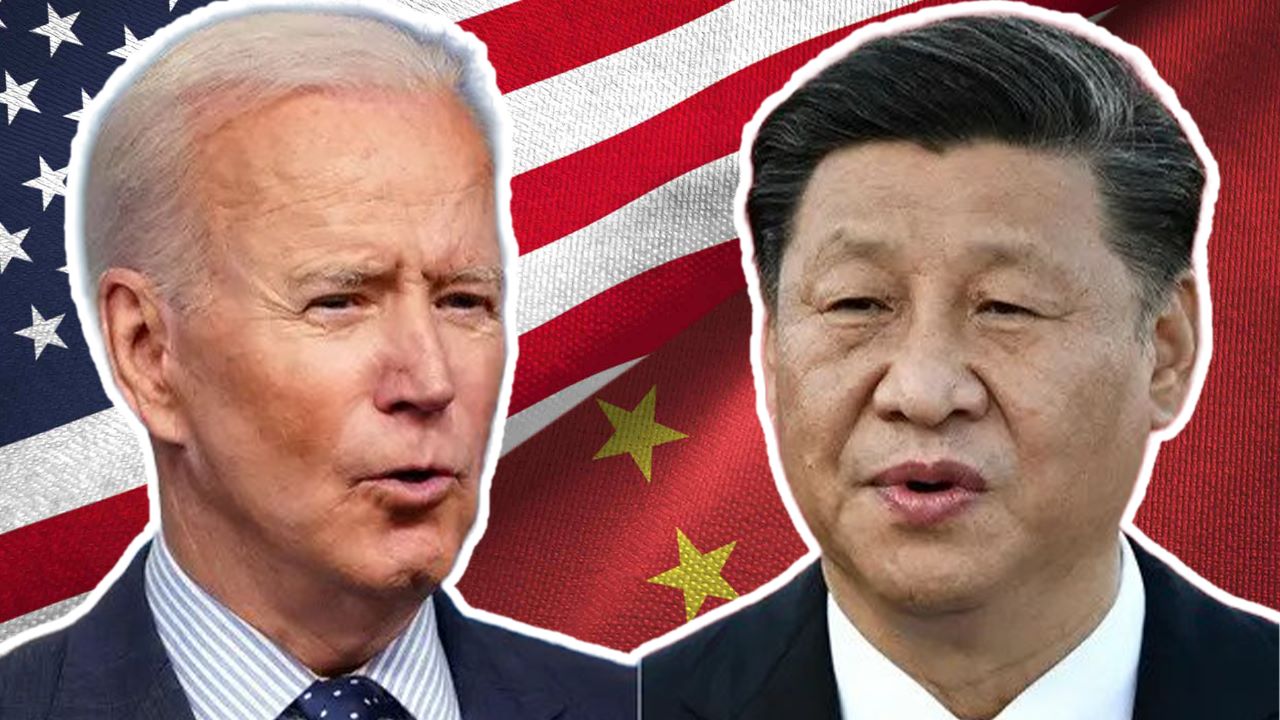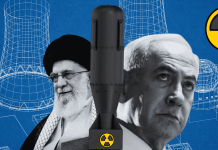China’s refusal to impress upon Iran to stem the Houthis’ attacks on the Red Sea has put the United States (US) in a dangerous situation where it now has to manage three global flashpoints, with two wars raging in one of the theaters – the Middle East.
US National Security Advisor (NSA) Jake Sullivan met Chinese State Councillor and Foreign Minister Wang Yi in Thailand on January 27 and 28 to use its good offices with Tehran to reign in the Houthis.
The Houthis have so far been attacking only Israeli merchant vessels and American and British warships but have spared Russian and Chinese ships – although the latter has been reported to be avoiding the Red Sea-Gulf of Aden route.
However, China views the Houthis’ Red Sea war as a direct spillover of the Gaza conflict and the “resultant humanitarian” crisis.
Put differently, the US finds itself in a position where only its arch-strategic rivals – Iran, China, and Russia – can help it manage a volatile situation and prevent it from being drawn into another war in the Middle East.
What Was Discussed
Following the meeting, either side’s official statements did not mention the issue. The White House statement said the two leaders held “candid, substantive and constructive discussions on global and regional issues,” including “Russia’s war against Ukraine [and] the Middle East.”

The meeting was “part of the effort to maintain open lines of communication and responsibly manage competition in the relationship as directed by the leaders,” the statement said, about a long-planned presidential summit in November that kicked off a reset process after prolonged bilateral acrimony.
The Chinese foreign ministry also called the talks “productive”, saying both sides discussed global issues including the Middle East, but did not provide details.
The US’s Fall From Grace In West Asia
China did improve ties with Tehran before the pandemic, which were bolstered even further after the rapprochement it brokered with long-standing rival Saudi Arabia. Subsequent coordinated diplomacy between the Persian nation and the Kingdom showed a genuine desire to de-escalate and normalize ties.
Even the United Arab Emirates (UAE) resumed diplomacy with Iran over the last two years, and both the Emiratis and the Saudis hosted Russian President Vladimir Putin early in December last year.
This marked the unmistakable preference towards Russia and China as the new strategic and economic partners of the region’s three most prominent players – Iran, Saudi Arabia, and the UAE. This, therefore, casts doubt over American expectations, especially when the Houthis have demonstrated significant autonomy from Iran and not necessarily being entirely under its tutelage.
However, the trip might also not have been a complete waste. Beijing realizes a need to end the human toll in Gaza and address the region’s emotional and diplomatic upheaval against Israel. It would have tried to see an opportunity to get the US to convince Israel for a ceasefire.

This is, however, subject to two possibilities. First, would it have asked for any concessions from the US, particularly over Taiwan? Secondly, it wouldn’t want to undermine Iran’s position in the Middle East, especially a deal that lends an advantage to Israel and jeopardizes its clout with the UAE, Saudi Arabia, and the rest of the Arab world.
‘US Comes To China When It Needs Help’
Washington’s official framing of the agenda with China attempts to strip its image as the party seeking help. NSC spokesman John Kirby said China can “have conversations with Iranian leaders that we can’t. And so, what we’ve said repeatedly is: we would welcome a constructive role by China, using the influence and access we know they have, to try to help stem the flow of weapons and munitions to the Houthis,” Kirby said.
The US has indirectly implied that Iran itself was not behind the attack and neither desires a war with the other. But it would also be viewed as “weak” and “feeble” if it did not retaliate since Biden is under mounting pressure from Republicans to be hard on Iran.
The standoff with Texas over immigration from Mexico and the continuing war in Ukraine are also drawing US resources to make it politically incapable of prosecuting a rare two-front war in a single theater.
Neither have Saudi Arabia and the UAE backed Israel and the US over Gaza, but have unequivocally criticized Tel Aviv’s actions. They have also refused to join the US and UK-led coalition that is striking the Houthis.
China, therefore, is surprised at the US’s attempts to enlist its help from Iran and the Houthis. It believes Washington seeks Beijing’s cooperation in aligning global concerns while continuing to challenge it strategically.
Beijing’s message is that Washington cannot continue to challenge it strategically and seek cooperation on common areas of concern like the Middle East, climate change or the post-COVID global economy.
Global Times quoted Liu Zhongmin, a professor at the Middle East Studies Institute of Shanghai International Studies University, “Counting on China to pressure Iran to stop Houthi attacks is an overly simplistic notion because China is not in a position to pressure Iran, and neither do the Houthi completely follow Iran’s orders.”
China views this as the US’s “perplexing contradiction in its approach toward China’s involvement with the Middle East.” While Washington harbors a “sense of envy” towards China’s relations in the Middle East, it must now also recognize that cooperation with Beijing is an “imperative” for diplomacy in the Arab world.
Washington’s poor military strategic prospects for this new ‘two-front war’ in the middle is not lost on its leaders. It has suddenly found itself on a collision course with Iran-backed militias in Syria and Iraq and possibly with Iran itself following the death of three US soldiers in the Jordan outpost attack.
The Houthis, meanwhile, are a militarily and tactically proficient non-state actor with a rare conventional arms arsenal and will be far from defeated or deterred by overwhelming US naval and air power. They have already displayed their technical ingenuity with low-cost missiles and drones to harrow large modern warships.
Cooperation On Economy
The economy is one area where Washington has been seeking Chinese cooperation. An overview of Treasury Secretary Janet Yellen’s dealings with Beijing would be in order, as it bares the American realization of the economic consequences of “decoupling” the extensively linked economies.
Yellen visited Beijing in July 2023, hosted Vice Premier Li Hifeng in California on November 10, 2023, and announced in mid-December that she would revisit Beijing in 2024. July 2023’s visit was to raise “unfair practices by China, including recent punitive actions against US firms and market access barriers.” Beijing slapped tariffs and import duties on US products in retaliation to the trade war launched by former President Donald Trump that continued under the Biden administration.
On January 26, she gave the sign of approval on the health of the Chinese economy. Reuters quoted Yellen saying its banks are “doing well” amid the ongoing stress in its real estate and banking sectors, adding that she did not see significant spillovers to the US economy at this stage. “If growth slows to Asian countries that are important trade partners, we may see some spillovers. But I don’t think they’ll be substantial,” she said.
China Invested In The US’s Survival?
It can be assumed that US trade, commerce, and treasury officials have also tried to glean to what extent the current “de-dollarization” is expected to harm the greenback. The fact that no US official has been quoted, even in the deep background, raising the alarm proves that they are rest assured Washington’s petrodollar economy still rules the roost.
In other words, the current trend of “de-dollarization” is only limited to countries settling their trade in local currencies and not an adoption of the Yuan as the world’s reserve currency.
The risk associated with such a massive burden when China is still a developing country and stuck in the ‘middle-income trap’ might risk its assets’ costs rising rapidly, threatening capital flight – a scenario well appreciated in Beijing.
This also disproves many China-friendly commentators’ claims that China secretly desires to “replace” the US as the new hegemon. Beijing is instead invested in the US’s survival. It prefers presenting itself as a well-rounded competitor offering an alternative global order without actually dismantling the old one – which China benefited from after adapting to reality before and after the Cold War.
Therefore, any demolition of the US-led structures would only be a natural byproduct of the majority of the countries simply embracing China and Russia-led trade and financial systems in a “multipolar” framework, and not its active deconstruction.
- The author can be reached at satamp@gmail.com
- Follow EurAsian Times on Google News




